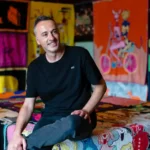By Destiny Uko
Drug addiction has remained a widely prevalent crisis, especially among the youth. In Nigeria, where drug addiction is perceived through the lens of morality rather than health, addicts are left to themselves more often than not.
Around the world, though, substance abuse is acknowledged as a chronic but treatable medical condition, rather than a lifestyle choice.
Amidst the social discrimination and deep feelings of stigma that persist in many Nigerian communities, a group of rehabilitation centres and non-profit organisations is leading recovery for drug users and attempting to flip the narrative. leading a change in this course.
As one of the largest private mental health providers in West Africa. SYNAPSE has branches in Lagos, Abuja, and Port Harcourt, including outside the country. It offers psychiatric care, clinical therapy and family counselling. It also offers advanced treatments such as transcranial magnetic stimulation (TMS), aimed at supporting recovery in treatment-resistant cases.
Tranquil and Quest Behavioural Health
Based in Lekki, Lagos, Tranquil and Quest Behavioural Health is another institution that caters to the needs of drug addicts. They give their patients personalised care and often involve both medical and psychological treatment. They recognise that many people struggling with addiction also battle mental health disorders. The treatment plan here entails ensuring that clients are sober and equipping them with the psychological tools and emotional support needed for continued wellness.
This offers clinical therapy as well as pitching patients closer to religion. This centre is especially keen to clients and families who find strength in religious contexts. In addition to addiction treatment, Adicare provides skills coaching, continued emotional support and follow-up for freed patients.
As crucial to the overall well-being of drug addicts as these centres might be, awareness and education remain vital. This is where organisations like the Global Initiative on Substance Abuse (GISA) come in.
Founded by Martin Agwogie, a Humphrey Fellow with the U.S. National Institute on Drug Abuse (NIDA), GISA focuses on prevention and early intervention. Their reach spans across schools, religious communities, and vulnerable groups.
Equally noteworthy is the work by the Centre for Research and Information on Substance Abuse (CRISA), based in Jos.
For years, CRISA has been compiling local data, publishing educational resources, and advising policymakers. They host a biennial conference yearly, like the 2024 edition, bring together researchers, clinicians, and civil society groups from across Africa to chart better responses to substance abuse.
The change should begin at home. The transformation can begin with simple acts such as paying solid attention, recognising warning signs early and avoiding harsh reactions like extreme scolding, punishment or blame.
Conclusion
Tackling addiction in Nigeria involves dealing with it from a medical and emotional approach. Addicts shouldn’t be left to themselves or be treated with contempt. These thoughtful rehabilitation centres and nonprofits have laid the foundation; society, then, should build on it. Working hand in hand, drug addiction and abuse can be reduced considerably.
Drug addiction in Nigeria is often viewed through a moral lens, with addicts frequently left to manage on their own. Contrastingly, the global perspective sees substance abuse as a chronic, treatable medical condition. In response to this disparity, rehabilitation centers and non-profit organizations in Nigeria are working towards changing perceptions and aiding recovery. Synapse Services, a leader in mental health care in West Africa, provides psychiatric services and advanced treatments like transcranial magnetic stimulation. Tranquil and Quest Behavioural Health offers personalized care with a focus on both medical and psychological treatment to help addicts achieve continued wellness. Adicare Rehabilitation Home combines clinical therapy with religious approaches, offering skills coaching and ongoing support post-treatment.
Organizations like the Global Initiative on Substance Abuse (GISA), founded by Martin Agwogie, focus on prevention and early intervention, particularly in schools and religious communities. The Centre for Research and Information on Substance Abuse (CRISA) in Jos compiles data, publishes resources, and advises policymakers, hosting conferences that unite stakeholders across Africa to improve responses to substance abuse.
To effectively tackle addiction, a comprehensive approach is needed, merging medical, emotional, and societal efforts. The work of these centers and organizations is vital, but societal change should start at home through early recognition of warning signs and supportive rather than punitive measures. Collaborative efforts could significantly reduce drug addiction and abuse in Nigeria.






